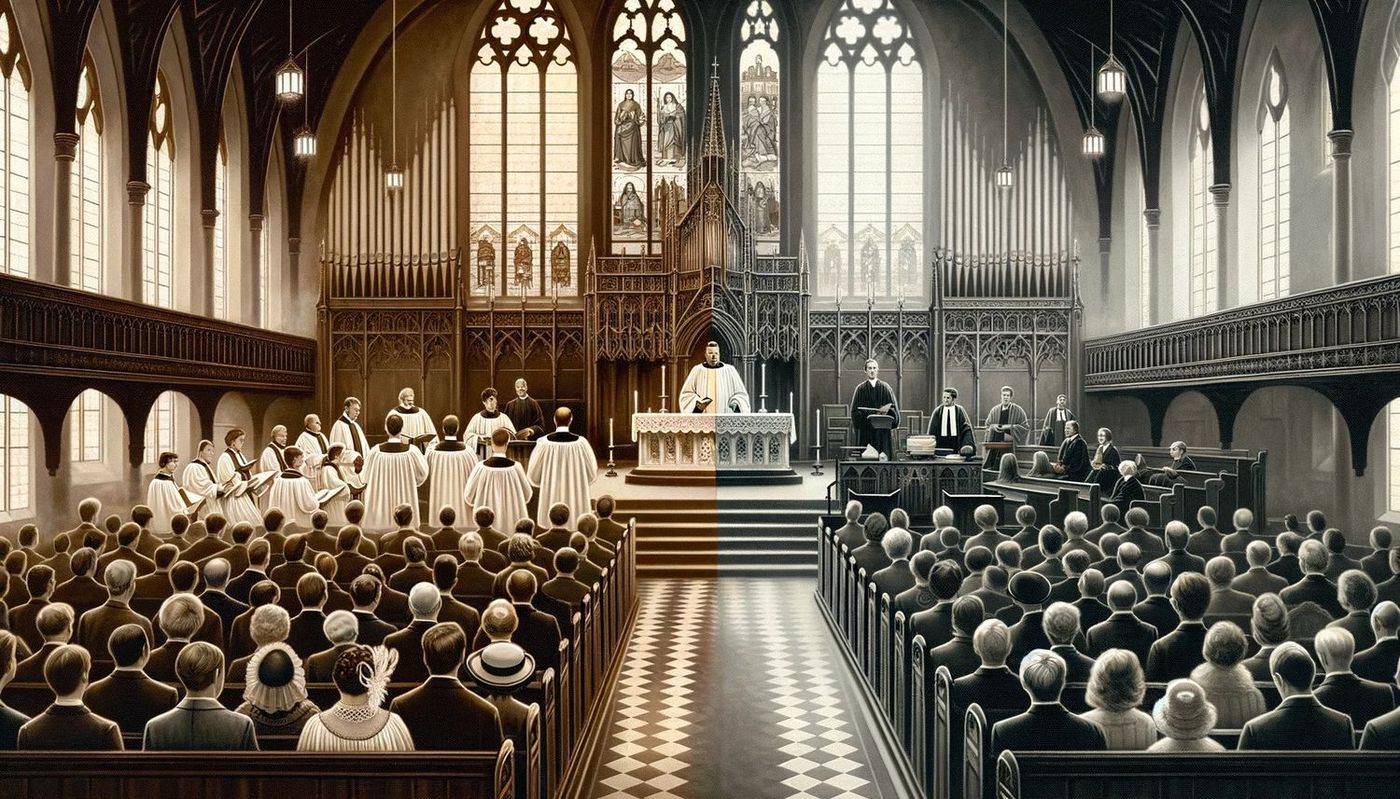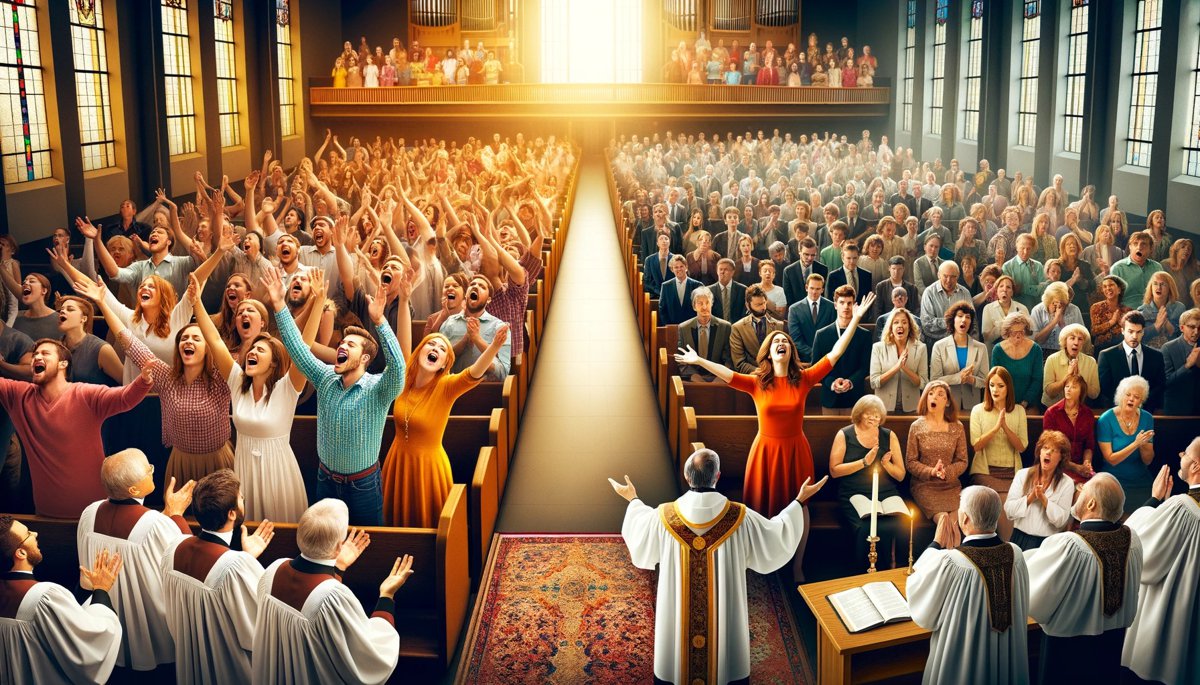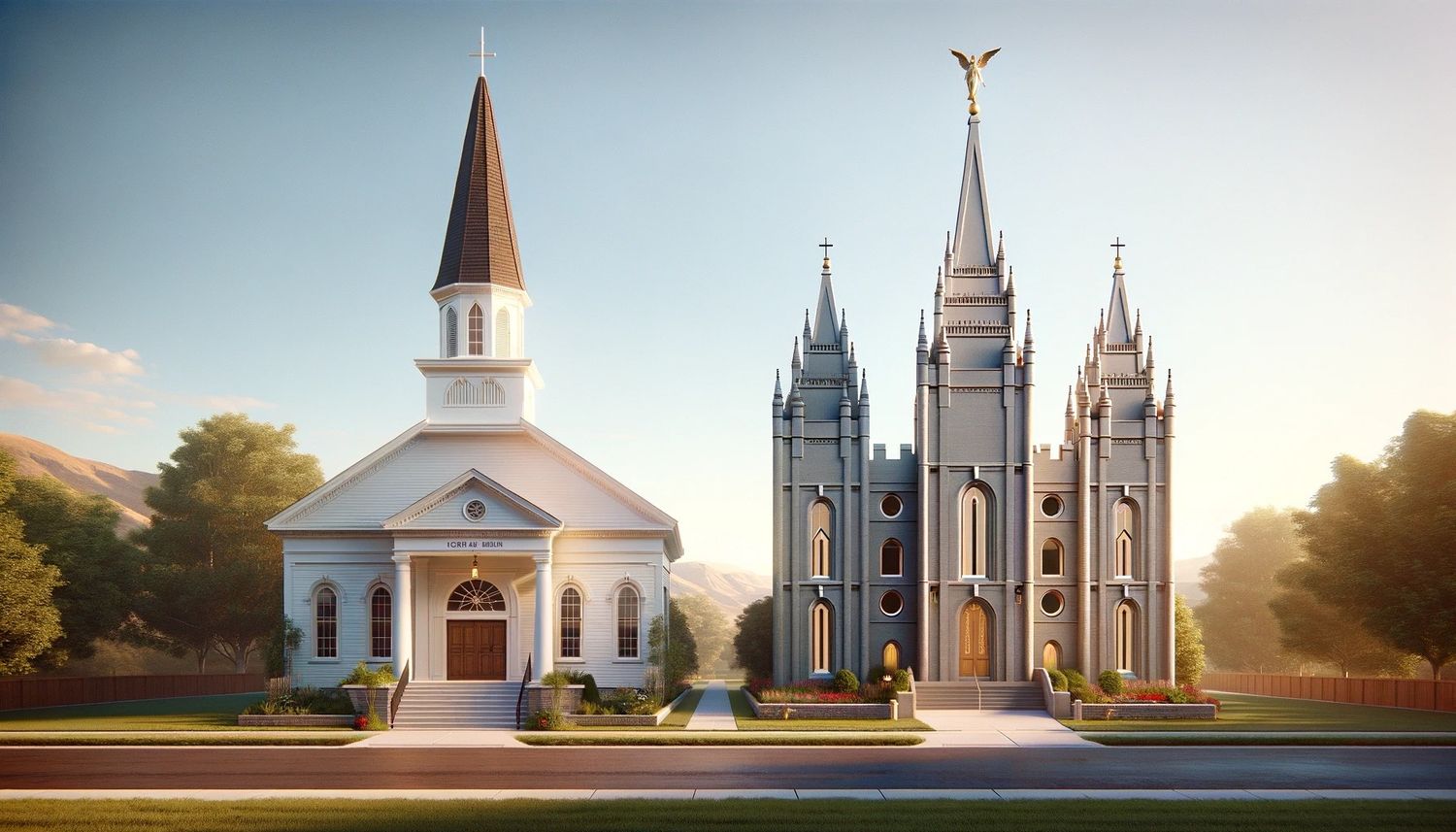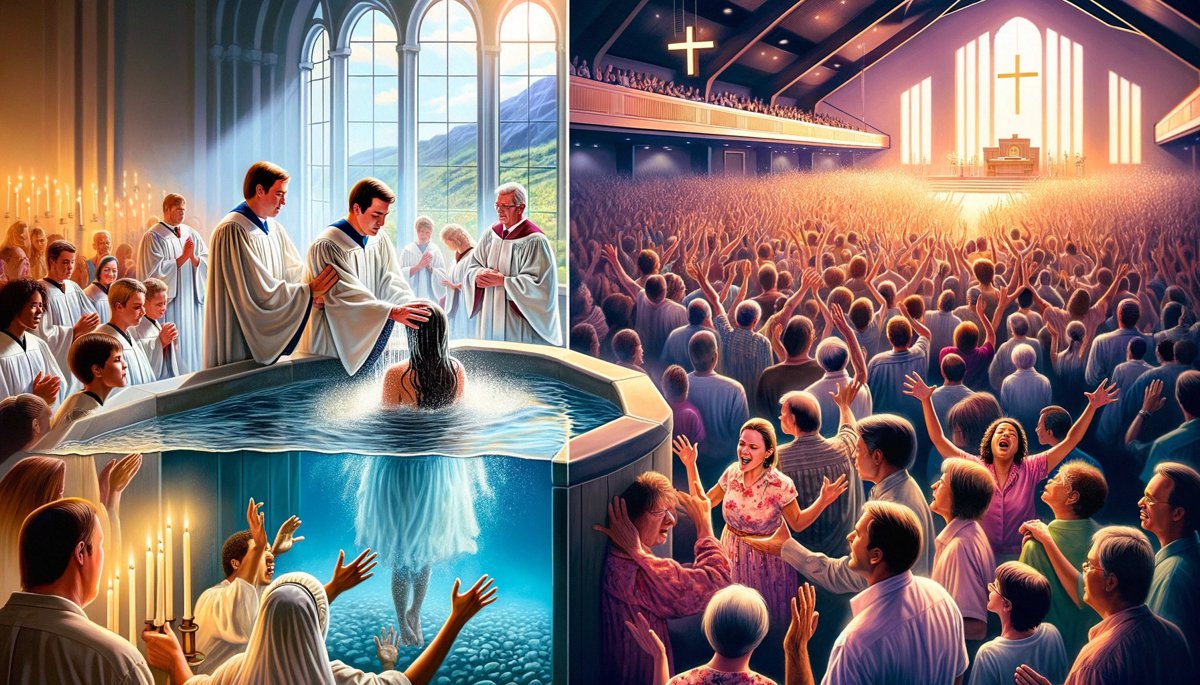Home>Theology and Spirituality>What Is The Difference Between Free Will Baptist And Southern Baptist
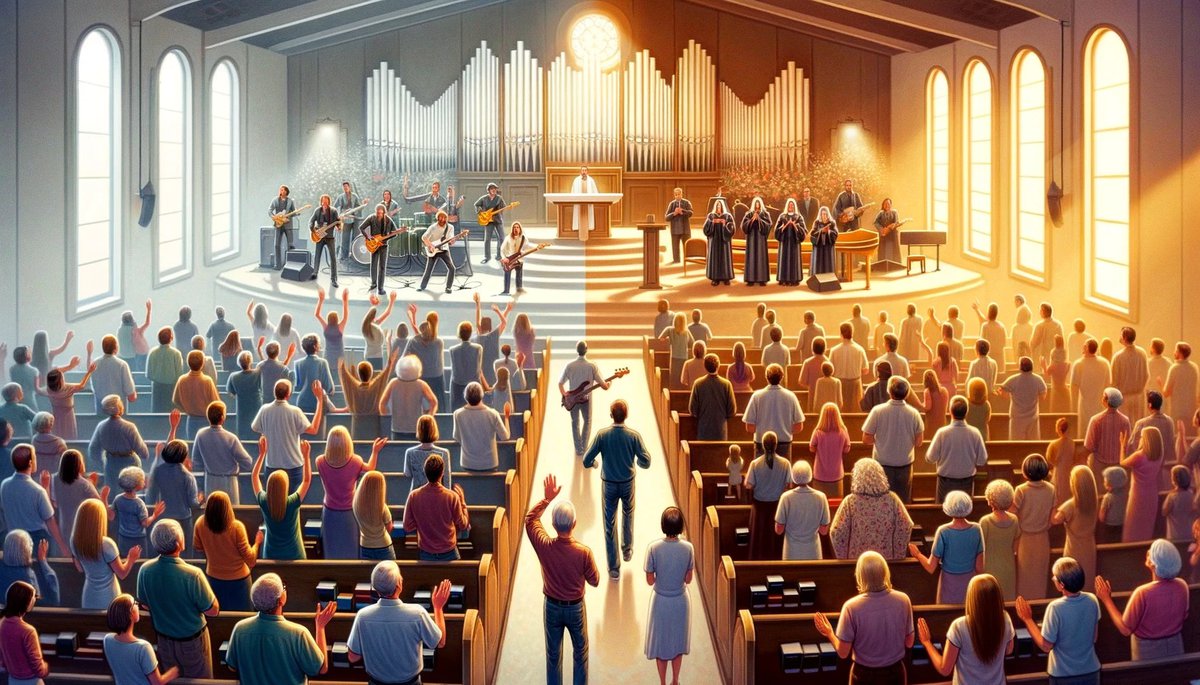

Theology and Spirituality
What Is The Difference Between Free Will Baptist And Southern Baptist
Published: February 21, 2024
Peter Smith, Editorial Director at Christian.net, combines deep insights into faith, politics, and culture to lead content creation that resonates widely. Awarded for his contributions to religious discourse, he previously headed a major organization for religious communicators, enhancing dialogue on faith's societal impacts.
Discover the key distinctions between Free Will Baptist and Southern Baptist beliefs in theology and spirituality. Explore their differences and similarities.
(Many of the links in this article redirect to a specific reviewed product. Your purchase of these products through affiliate links helps to generate commission for Christian.net, at no extra cost. Learn more)
Table of Contents
- Introduction
- History of Free Will Baptist and Southern Baptist
- Beliefs and Doctrines of Free Will Baptist and Southern Baptist
- Church Structure and Governance of Free Will Baptist and Southern Baptist
- Practices and Traditions of Free Will Baptist and Southern Baptist
- Differences in Worship and Liturgy between Free Will Baptist and Southern Baptist
- Conclusion
Introduction
The Free Will Baptist and Southern Baptist denominations are two prominent Christian groups with distinct histories, beliefs, and practices. While both share a commitment to the Christian faith, they differ in various theological and doctrinal aspects. Understanding the differences between Free Will Baptist and Southern Baptist can provide valuable insights into the diverse tapestry of Christian traditions and beliefs.
These two denominations have evolved separately, each with its unique theological perspectives and organizational structures. Exploring their histories, beliefs, church governance, and worship practices can shed light on the nuanced differences that have shaped their identities. By delving into these aspects, we can gain a deeper appreciation for the rich diversity within the Christian faith and the various ways in which individuals express their devotion to God.
In the following sections, we will embark on a comprehensive exploration of the Free Will Baptist and Southern Baptist denominations. We will delve into their historical roots, examine their core beliefs and doctrines, and analyze their distinct church structures and governance models. Additionally, we will explore their respective practices, traditions, worship styles, and liturgical differences. Through this exploration, we aim to provide a nuanced understanding of the unique characteristics that define each denomination, fostering a deeper appreciation for the rich tapestry of Christian traditions.
History of Free Will Baptist and Southern Baptist
The history of the Free Will Baptist and Southern Baptist denominations is a tapestry woven with diverse cultural, theological, and regional influences. Understanding their historical trajectories provides valuable insights into the distinct paths that have shaped these two Christian traditions.
Free Will Baptist History
The roots of the Free Will Baptist tradition can be traced back to the early 17th century in England, where dissenting voices within the Puritan movement began to emphasize the concept of free will in matters of salvation. This emphasis on human free will in choosing or rejecting God's grace became a defining characteristic of the Free Will Baptist tradition. In the 18th century, Free Will Baptists migrated to the American colonies, where they continued to propagate their theological perspectives and establish congregations.
The Free Will Baptist denomination formally coalesced in the late 18th century, with the establishment of the General Conference of Free Will Baptists in 1727. Over the centuries, the denomination experienced internal diversity and underwent various schisms, leading to the formation of different Free Will Baptist associations and fellowships. This historical trajectory reflects the dynamic nature of the Free Will Baptist tradition, characterized by a commitment to individual agency in matters of faith and salvation.
Southern Baptist History
The Southern Baptist tradition has its origins in the early 19th century, when Baptists in the southern United States sought to organize themselves independently from northern Baptist associations. The catalyst for this separation was rooted in regional, cultural, and theological differences, particularly concerning the issue of slavery. In 1845, the Southern Baptist Convention was formed, marking the official establishment of the Southern Baptist denomination.
The Southern Baptist Convention's history is intertwined with the complex social and political landscape of the American South, including its involvement in missionary work, educational initiatives, and social advocacy. Throughout its history, the Southern Baptist Convention has grappled with various theological and social issues, reflecting the evolving dynamics of the broader American society.
In summary, the histories of the Free Will Baptist and Southern Baptist denominations are marked by distinct historical contexts, theological emphases, and regional influences. These historical trajectories have contributed to the unique identities and theological perspectives that define each tradition, shaping their beliefs, practices, and organizational structures.
Beliefs and Doctrines of Free Will Baptist and Southern Baptist
The Free Will Baptist and Southern Baptist denominations hold distinctive beliefs and doctrines that shape their theological perspectives and guide their religious practices. Understanding these core tenets is essential for comprehending the theological nuances that differentiate these two Christian traditions.
Free Will Baptist Beliefs and Doctrines
Free Will Baptists emphasize the concept of free will in matters of salvation, affirming that individuals have the capacity to accept or reject God's grace. This theological stance reflects a belief in the autonomy of human choice and the responsibility of individuals to respond to the offer of salvation. Free Will Baptists uphold the authority of Scripture and emphasize the need for personal faith in Jesus Christ for salvation. They also affirm the importance of repentance, regeneration, and the perseverance of the saints.
Additionally, Free Will Baptists hold to the belief in the priesthood of all believers, affirming the direct access of every individual to God without the need for intermediaries. This egalitarian view underscores the democratic nature of Free Will Baptist congregations, where members actively participate in decision-making processes and the governance of the church.
Southern Baptist Beliefs and Doctrines
The Southern Baptist tradition is characterized by its adherence to the principles of biblical inerrancy and the authority of Scripture. Southern Baptists affirm the infallibility and divine inspiration of the Bible, viewing it as the ultimate guide for faith and practice. They emphasize the importance of personal conversion and the proclamation of the gospel, seeking to spread the message of salvation to all nations.
Southern Baptists also uphold the doctrines of original sin, atonement through the sacrificial death of Jesus Christ, and the necessity of faith in Christ for salvation. They emphasize the significance of evangelism, missions, and discipleship, seeking to fulfill the Great Commission by making disciples of all nations.
While both denominations share fundamental Christian beliefs, such as the Trinity, the deity of Christ, and the resurrection, their nuanced interpretations of free will, predestination, and the nature of salvation distinguish their theological perspectives.
In summary, the beliefs and doctrines of Free Will Baptist and Southern Baptist traditions reflect their theological emphases on free will, biblical authority, evangelism, and the nature of salvation. These core tenets shape the religious identities of these denominations and inform their practices, worship, and engagement with broader societal issues.
Church Structure and Governance of Free Will Baptist and Southern Baptist
The organizational structures and governance models of the Free Will Baptist and Southern Baptist denominations play a pivotal role in shaping their respective identities and operational frameworks. These structures encompass the ways in which decisions are made, leadership is established, and congregational autonomy is upheld.
Free Will Baptist Church Structure and Governance
Free Will Baptist churches are characterized by a congregational polity, emphasizing the autonomy of individual congregations in decision-making processes. Each local church retains the authority to govern its affairs, select its leaders, and determine its doctrinal positions. This congregational autonomy is a defining feature of Free Will Baptist governance, reflecting a commitment to local church independence and self-governance.
At the regional and national levels, Free Will Baptist churches often participate in voluntary associations and conferences, where they collaborate on missions, ministries, and doctrinal affirmations. These associations serve as platforms for fellowship, mutual support, and cooperative endeavors while respecting the autonomy of individual congregations.
The General Conference of Free Will Baptists, established in 1727, provides a unifying structure for Free Will Baptist churches in the United States and abroad. This national organization facilitates collaborative efforts, theological education, and mission initiatives while affirming the autonomy and self-governance of local congregations.
Southern Baptist Church Structure and Governance
The Southern Baptist Convention operates under a representative form of governance, where elected messengers from affiliated churches gather annually to make decisions and set priorities for the denomination. This representative model reflects a commitment to cooperative decision-making and shared leadership among member churches.
Within the Southern Baptist Convention, various entities, such as mission boards, seminaries, and cooperative programs, operate under the oversight of elected trustees and boards. This multi-tiered governance structure enables the denomination to coordinate missions, educational initiatives, and social advocacy efforts on a broader scale.
The Southern Baptist Convention also upholds the autonomy of local churches while fostering collaborative partnerships through cooperative programs and mission endeavors. This balance between congregational autonomy and cooperative governance underscores the denomination's commitment to shared mission and collective decision-making.
In summary, the church structures and governance models of the Free Will Baptist and Southern Baptist denominations reflect their respective approaches to congregational autonomy, cooperative decision-making, and shared mission endeavors. These structures play a crucial role in shaping the operational dynamics, leadership frameworks, and collaborative efforts within each denomination.
Practices and Traditions of Free Will Baptist and Southern Baptist
The practices and traditions of the Free Will Baptist and Southern Baptist denominations encompass a wide array of religious observances, rituals, and communal customs that reflect their theological emphases and historical legacies. These practices serve as integral components of worship, spiritual formation, and communal identity, shaping the lived experiences of adherents within each tradition.
Free Will Baptist Practices and Traditions
Free Will Baptist congregations engage in a variety of religious practices and traditions that underscore their commitment to personal faith, congregational autonomy, and community engagement. Worship services within Free Will Baptist churches often feature a blend of traditional hymns, contemporary music, and heartfelt expressions of faith. The emphasis on congregational singing and participatory worship reflects the egalitarian ethos of Free Will Baptist congregations, where individual voices contribute to the collective expression of praise and devotion.
In addition to regular worship services, Free Will Baptist congregations prioritize the observance of sacraments, including baptism and the Lord's Supper. Baptism is viewed as an outward expression of one's faith and a symbol of spiritual rebirth, while the Lord's Supper serves as a commemoration of Christ's sacrifice and a reaffirmation of believers' covenant with God.
Furthermore, Free Will Baptist communities often uphold traditions of fellowship, mutual support, and community outreach. These traditions manifest in various forms, such as potluck gatherings, prayer meetings, and collaborative efforts to address social needs within their localities. The emphasis on community engagement and mutual care reflects the Free Will Baptist commitment to embodying the love of Christ in practical, tangible ways.
Southern Baptist Practices and Traditions
Southern Baptist congregations are characterized by a rich tapestry of practices and traditions that reflect their emphasis on evangelism, missions, and biblical fidelity. Worship services within Southern Baptist churches often feature dynamic preaching, congregational singing, and a strong emphasis on scriptural teaching. The proclamation of the gospel and the exhortation to personal faith in Christ are central themes that permeate Southern Baptist worship gatherings.
In addition to regular worship services, Southern Baptist congregations prioritize evangelistic outreach, discipleship initiatives, and missions endeavors. The tradition of evangelism is deeply ingrained in Southern Baptist identity, driving congregations to actively engage in sharing the message of salvation and making disciples both locally and globally. This commitment to missions and evangelism is often expressed through collaborative efforts, missionary support, and engagement with diverse cultural contexts.
Furthermore, Southern Baptist communities uphold traditions of fellowship, hospitality, and community involvement. These traditions manifest in various forms, such as fellowship meals, small group gatherings, and outreach programs aimed at meeting the spiritual and practical needs of individuals within and beyond the church community. The emphasis on hospitality and community engagement reflects the Southern Baptist commitment to embodying Christ's love and extending grace to others.
In summary, the practices and traditions of the Free Will Baptist and Southern Baptist denominations encompass a rich tapestry of religious observances, communal customs, and spiritual disciplines that reflect their distinct theological emphases and communal identities. These practices serve as vital expressions of faith, shaping the lived experiences of individuals and communities within each tradition.
Differences in Worship and Liturgy between Free Will Baptist and Southern Baptist
The worship and liturgical practices of the Free Will Baptist and Southern Baptist denominations reflect their theological emphases, cultural influences, and historical legacies. While both traditions share a commitment to worshiping God and nurturing spiritual growth, they exhibit nuanced differences in their approaches to liturgy, music, sacraments, and congregational participation.
Free Will Baptist Worship and Liturgy
Free Will Baptist worship services often embody a blend of traditional hymnody and contemporary music, reflecting a diverse musical heritage that resonates with congregants across generations. The emphasis on congregational singing and participatory worship underscores the egalitarian ethos of Free Will Baptist congregations, where individual voices contribute to the collective expression of praise and devotion. The worship style is often characterized by heartfelt expressions of faith, fostering an atmosphere of spiritual intimacy and communal engagement.
In terms of liturgical practices, Free Will Baptist churches prioritize the observance of sacraments, particularly baptism and the Lord's Supper. Baptism is viewed as an outward expression of one's faith and a symbol of spiritual rebirth, often conducted through immersion in water. The Lord's Supper, or communion, serves as a solemn commemoration of Christ's sacrifice and a reaffirmation of believers' covenant with God. These sacramental observances hold significant spiritual and symbolic meaning within Free Will Baptist worship contexts.
Southern Baptist Worship and Liturgy
Southern Baptist worship services are characterized by dynamic preaching, congregational singing, and a strong emphasis on scriptural teaching. The proclamation of the gospel and the exhortation to personal faith in Christ are central themes that permeate Southern Baptist worship gatherings. The worship style often reflects a reverence for scriptural truth and a commitment to fostering spiritual growth through the faithful exposition of God's Word.
While Southern Baptist churches also prioritize the observance of sacraments, particularly baptism and the Lord's Supper, the modes of practice may exhibit variations across congregations. Baptism is commonly administered through immersion, symbolizing the believer's identification with Christ's death and resurrection. The Lord's Supper is observed as a memorial of Christ's redemptive work and a communal expression of believers' unity in Christ.
Nuanced Differences
The differences in worship and liturgy between Free Will Baptist and Southern Baptist traditions encompass nuanced variations in musical styles, liturgical emphases, and sacramental observances. While both traditions share a commitment to fostering spiritual vitality and communal worship, their distinct approaches to congregational participation, musical expressions, and sacramental theology contribute to the rich tapestry of Christian worship practices.
In essence, the worship and liturgical differences between Free Will Baptist and Southern Baptist traditions reflect the diverse ways in which these denominations seek to honor God, nurture spiritual formation, and engage congregants in meaningful expressions of faith. These differences underscore the unique cultural, theological, and historical influences that have shaped the worship traditions of each denomination, enriching the broader landscape of Christian worship and liturgical diversity.
Conclusion
In conclusion, the Free Will Baptist and Southern Baptist denominations embody rich theological traditions, historical legacies, and communal practices that distinguish their identities within the broader tapestry of Christian faith. The nuanced differences in their histories, beliefs, church structures, practices, and worship traditions reflect the diverse ways in which these traditions have evolved, adapted, and expressed their devotion to God.
The historical trajectories of Free Will Baptist and Southern Baptist denominations reveal the complex interplay of theological emphases, regional influences, and social dynamics that have shaped their distinct identities. From the emphasis on free will and congregational autonomy in Free Will Baptist history to the regional, cultural, and theological factors that led to the formation of the Southern Baptist Convention, these historical narratives provide valuable insights into the unique paths traversed by each tradition.
Furthermore, the core beliefs and doctrines of Free Will Baptist and Southern Baptist traditions underscore their theological emphases on free will, biblical authority, evangelism, and the nature of salvation. While both traditions share fundamental Christian beliefs, their nuanced interpretations of free will, predestination, and the nature of salvation reflect the theological diversity within the broader Baptist heritage.
The church structures and governance models of Free Will Baptist and Southern Baptist denominations highlight their respective approaches to congregational autonomy, cooperative decision-making, and shared mission endeavors. These structures play a crucial role in shaping the operational dynamics, leadership frameworks, and collaborative efforts within each denomination, reflecting their commitments to local church independence and cooperative partnerships.
Moreover, the practices, traditions, worship styles, and liturgical differences between Free Will Baptist and Southern Baptist traditions reflect the diverse ways in which these denominations seek to honor God, nurture spiritual formation, and engage congregants in meaningful expressions of faith. These differences underscore the unique cultural, theological, and historical influences that have shaped the worship traditions of each denomination, enriching the broader landscape of Christian worship and liturgical diversity.
In essence, the exploration of Free Will Baptist and Southern Baptist denominations provides a deeper understanding of the diverse expressions of Christian faith and the rich tapestry of theological perspectives that contribute to the vibrant mosaic of global Christianity. By appreciating the nuanced differences and shared commitments of these traditions, we gain valuable insights into the multifaceted nature of Christian belief, practice, and communal identity.


